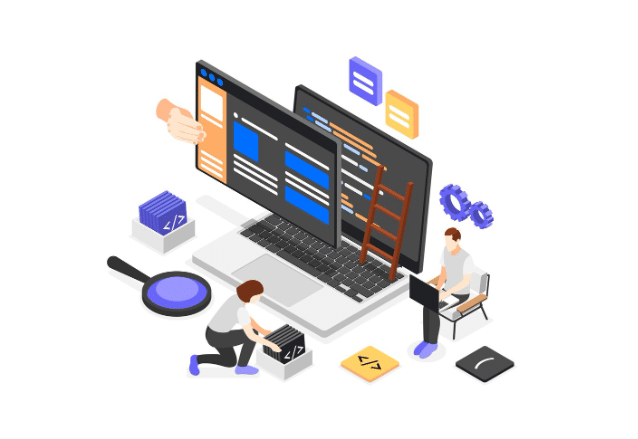The demand for telemetry tech has grown rapidly across industries ranging from healthcare to aviation and manufacturing. Telemetry refers to the automated collection, transmission, and analysis of data from remote or inaccessible locations. With the help of advanced technology, it allows real-time monitoring, efficient data processing, and improved decision-making. Businesses and healthcare providers are increasingly adopting telemetry tech to enhance productivity, safety, and performance.
What is Telemetry Tech?
Telemetry tech is a system that uses sensors, wireless communication, and data analytics to track and report vital information. For instance, in the healthcare sector, telemetry is used to monitor patients’ heart rate, oxygen levels, and blood pressure without requiring constant manual checks. In engineering and industrial fields, telemetry plays a vital role in monitoring equipment, vehicles, or even spacecraft in real time.
Applications of Telemetry Tech
The versatility of telemetry tech makes it invaluable in multiple sectors:
Also, explore Afruimwagens: Essential Equipment for Efficient Agricultural Operations
- Healthcare: Remote monitoring of patients with conditions like arrhythmia or heart disease.
- Automotive: Cars use telemetry for diagnostics and performance tracking.
- Aerospace: Rockets and satellites transmit real-time data during missions.
- Manufacturing: Machines are monitored to predict failures and schedule maintenance.
- Environmental science: Telemetry systems track weather patterns, wildlife movement, and pollution levels.
These applications highlight how telemetry tech improves accuracy, safety, and efficiency in different industries.
Benefits of Using Telemetry Tech
Organizations and individuals benefit from telemetry tech in several ways:
- Real-time monitoring: Ensures timely interventions, especially in critical sectors like healthcare.
- Cost efficiency: Reduces manual labor and prevents costly equipment failures.
- Data-driven insights: Provides valuable information for decision-making and long-term planning.
- Enhanced safety: Minimizes risks by predicting problems before they occur.
By integrating IoT devices, wireless sensors, and cloud platforms, telemetry becomes a powerful tool for smarter operations.
Telemetry Tech in Healthcare
In the medical field, telemetry tech has revolutionized patient care. Hospitals use telemetry units to continuously monitor patients with heart conditions, sending alerts to medical staff in case of irregularities. With the rise of remote healthcare and telemedicine, telemetry allows patients to be monitored at home, reducing hospital stays and improving convenience. Wearable devices such as smartwatches and fitness trackers also rely on telemetry to track vital signs.
Challenges of Telemetry Tech
Despite its many benefits, telemetry tech comes with challenges:
- Data security risks due to constant transmission.
- High implementation costs for some industries.
- Connectivity issues in remote locations.
- Training requirements for staff to manage and interpret telemetry systems effectively.
Overcoming these challenges requires stronger cybersecurity, affordable devices, and better infrastructure.
Future of Telemetry Tech
The future of telemetry tech is promising, with advancements in artificial intelligence, 5G connectivity, and big data analytics. These developments will make telemetry faster, smarter, and more accurate. From smart cities to personalized healthcare, telemetry will continue to shape how data is collected and used.
Frequently Asked Questions (FAQs)
- What is tele-metry tech used for?
It is used to remotely collect and analyze data in industries like healthcare, automotive, aerospace, and environmental monitoring. - How does tele-metry tech work in healthcare?
It monitors patient vitals such as heart rate and oxygen levels, alerting medical staff in real time if abnormalities are detected. - What are the benefits of tele-metry tech?
It provides real-time monitoring, cost savings, predictive maintenance, and improved decision-making. - Is tele-metry tech secure?
Yes, but it requires robust cybersecurity measures to protect sensitive data from breaches. - What is the future of tele-metry tech?
With AI, IoT, and 5G integration, telemetry will become more efficient, accurate, and widely adopted across industries.
Conclusion
In today’s data-driven world, tele-metry tech has become a vital tool for monitoring, analysis, and decision-making. Whether in healthcare, aerospace, or industrial settings, telemetry enhances efficiency, reduces risks, and enables proactive management. While challenges like security and costs exist, advancements in technology continue to make telemetry more reliable and accessible. As industries move toward smarter solutions, tele-metry tech will remain at the forefront of innovation, driving a future where real-time data shapes better outcomes.

Top 10 IT Certifications That Actually Boost Your Salary in 2026

Amazon Ads vs. Google Ads: Which Platform Drives Better eCommerce Sales?

Where to Buy a Passport Online for Uninterrupted Global Travel



